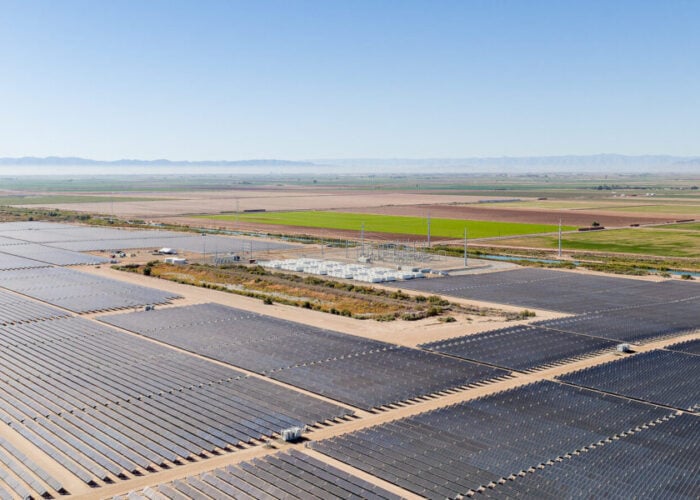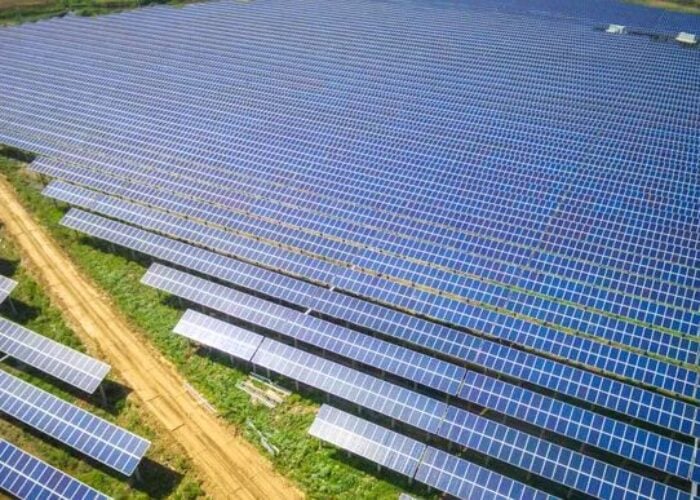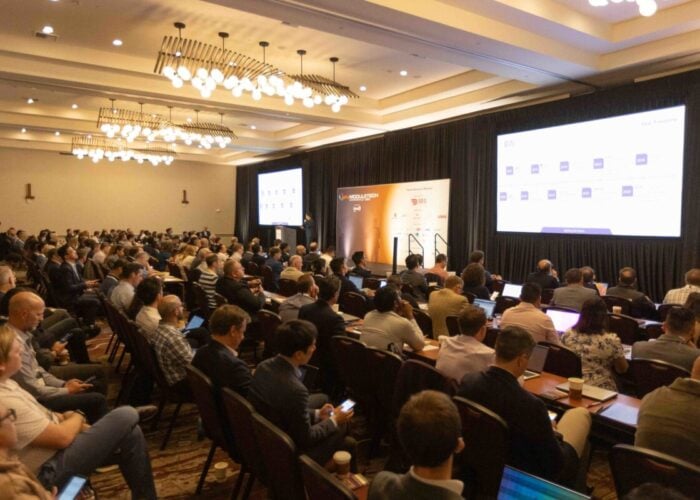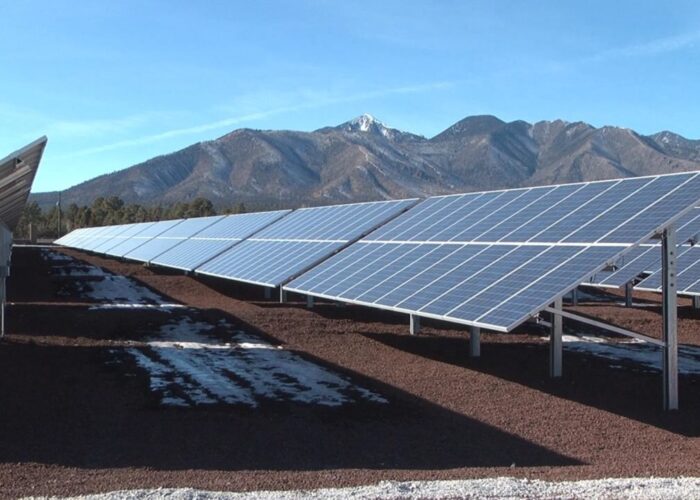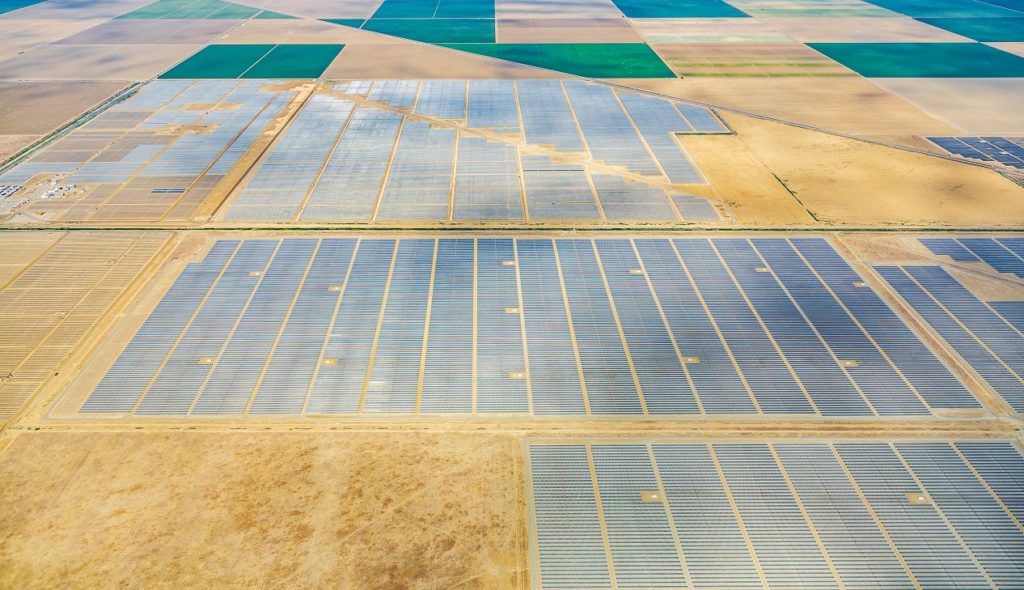
With President Biden declaring a two-year freeze on new tariffs on solar imports from Southeast Asia, questions have been raised about the legality of the move as industry stakeholders assess the risk of it being challenged in court.
US solar project developers and renewables trade associations were quick to welcome Biden’s announcement, which will allow the industry to kickstart deployment following months of uncertainty stemming from the Department of Commerce’s inquiry into alleged circumvention of antidumping and countervailing duties (AD/CVD) by PV manufacturers in Cambodia, Malaysia, Thailand and Vietnam.
Unlock unlimited access for 12 whole months of distinctive global analysis
Photovoltaics International is now included.
- Regular insight and analysis of the industry’s biggest developments
- In-depth interviews with the industry’s leading figures
- Unlimited digital access to the PV Tech Power journal catalogue
- Unlimited digital access to the Photovoltaics International journal catalogue
- Access to more than 1,000 technical papers
- Discounts on Solar Media’s portfolio of events, in-person and virtual
Developers are set to pile up modules in the next two years or so, not only for plants under construction now but also for early-stage projects in their pipelines, according to Pol Lezcano, a solar analyst at research organisation BloombergNEF.
“Before they do, they will probably want to confirm with their lawyers to make sure there is no risk of the 24-month exemption being challenged and won in courts,” he said. “We’re still looking at how strong/isolated the White House’s tariff exemption actually is from potential legal challenges.”
Auxin Solar, the California-based module manufacturer that is the petitioner in Commerce’s investigation, has already flagged concerns about the tariff freeze. The company’s CEO, Mamun Rashid, said President Biden “is significantly interfering in Commerce’s quasi-judicial process. By taking this unprecedented – and potentially illegal – action, he has opened the door wide for Chinese-funded special interests to defeat the fair application of US trade law.”
A declaration of emergency from Biden highlighted current module supply challenges in the US, with projects being cancelled or postponed across the country. Noting an “acute shortage” of modules, the declaration says roughly half of the domestic deployment of solar modules that had been anticipated over the next year is currently in jeopardy due to insufficient supply.
Commerce issued a separate statement affirming that it will support Biden’s declaration by issuing regulations to temporarily permit for up to 24 months duty-free access to solar cells and modules from the four Southeast Asian countries.
The move to suspend new tariffs on cells and modules is “unprecedented”, said Tim Brightbill, a partner at law firm Wiley Rein, who has previously represented US solar manufacturers that called for an extension of AD/CVD orders in Southeast Asia.
“I would say a number of parties are looking at the legality of what the president did”
Tim Brightbill, Wiley Rein
“We have serious concerns about this deal. The US solar manufacturing industry was not consulted as a part of the process,” Brightbill said. “These countries are free to dump and subsidise for two years. And the White House has decided to undercut the trade laws and to undercut trade enforcement.”
“I would say a number of parties are looking at the legality of what the president did,” he added.
The direction of Commerce by the Biden administration may be challenged in court by Auxin or another interested party, according to a post by lawyers at law firm Husch Blackwell, who said such a challenge would likely be brought to the US Court of International Trade.
“The two-year freeze is unprecedented and raises a number of questions of legality under US trade law. But because it has a national security angle to it, any challenges to the freeze may be an uphill battle for the US domestic industry,” said Husch Blackwell partner Jeffrey Neeley in a comment sent to PV Tech.
“Whether the actions of President Biden are challenged is a bit difficult to predict, since there are certain carrots in the announced actions, as well as the freeze. I am sure that there are a lot of meetings going on today on just that issue.”
Nonetheless, the circumvention investigation will continue. If Commerce does reach an affirmative determination, solar imports from the four Southeast Asian countries would not be subject to increased duties until 6 June 2024, or until Biden determines that the emergency is over, whichever occurs first.
George Hershman, CEO of EPC contractor SOLV Energy, said that while the potential for new tariffs stemming from the investigation is “a concern”, he is bullish that Commerce will reach a negative determination.
“I think that with time and the lack of pressure of trying to get this done quickly now is that they can look at the facts of this case and Commerce is going to find a negative ruling,” he said.
Following Biden’s announcement, SOLV Energy’s teams got to work on evaluating the company’s delayed projects and figuring out how to restart supply chains. “This is not just like turning on a spigot,” Hershman said. “We have to restart projects, we have to open up supply chains. There’s a lot of things that we need to do to get everything rolling again.”
Biden’s declaration followed sustained solar industry lobbying alongside pressure from scores of US lawmakers. Recent months have seen bipartisan groups of US senators, House members and governors voice their opposition to Commerce’s investigation.
“This is new for the solar and the renewable industry to have such vocal support from all sides of government,” Hershman said. “This shows the industry has truly come of age… We’re starting to be the energy force that we should be.”
He added: “The next mission for us to get accomplished is the energy package of what is left of Build Back Better. And we’re going to need those folks in our corners as well.”



